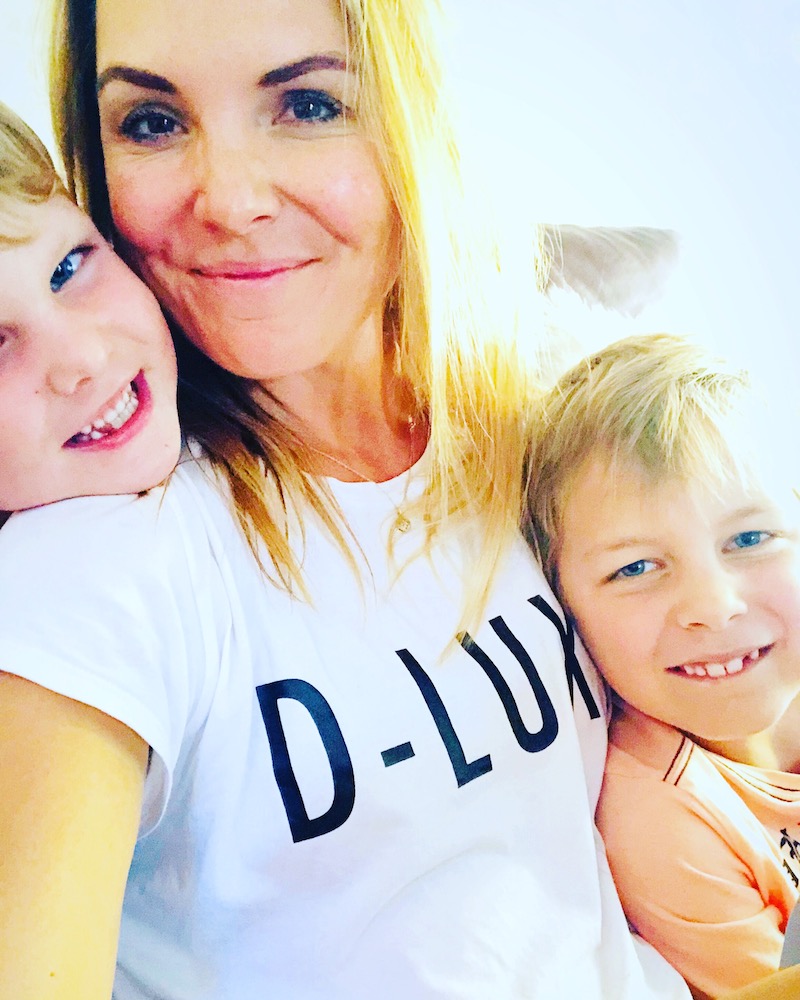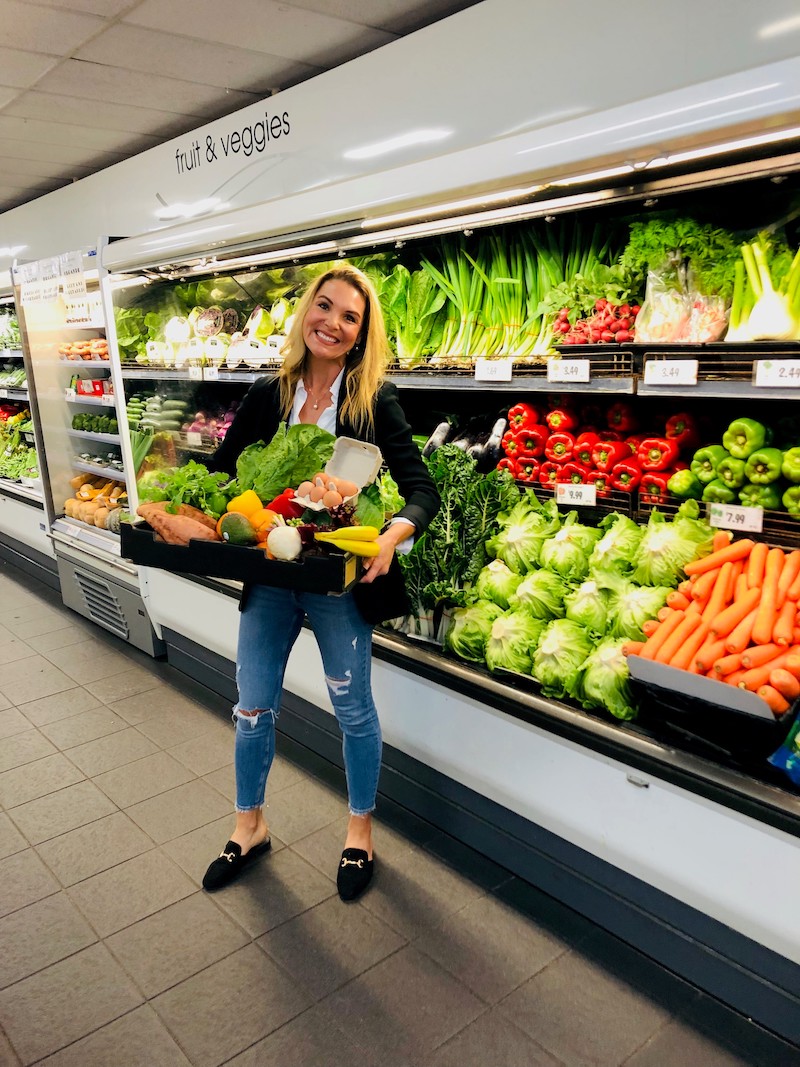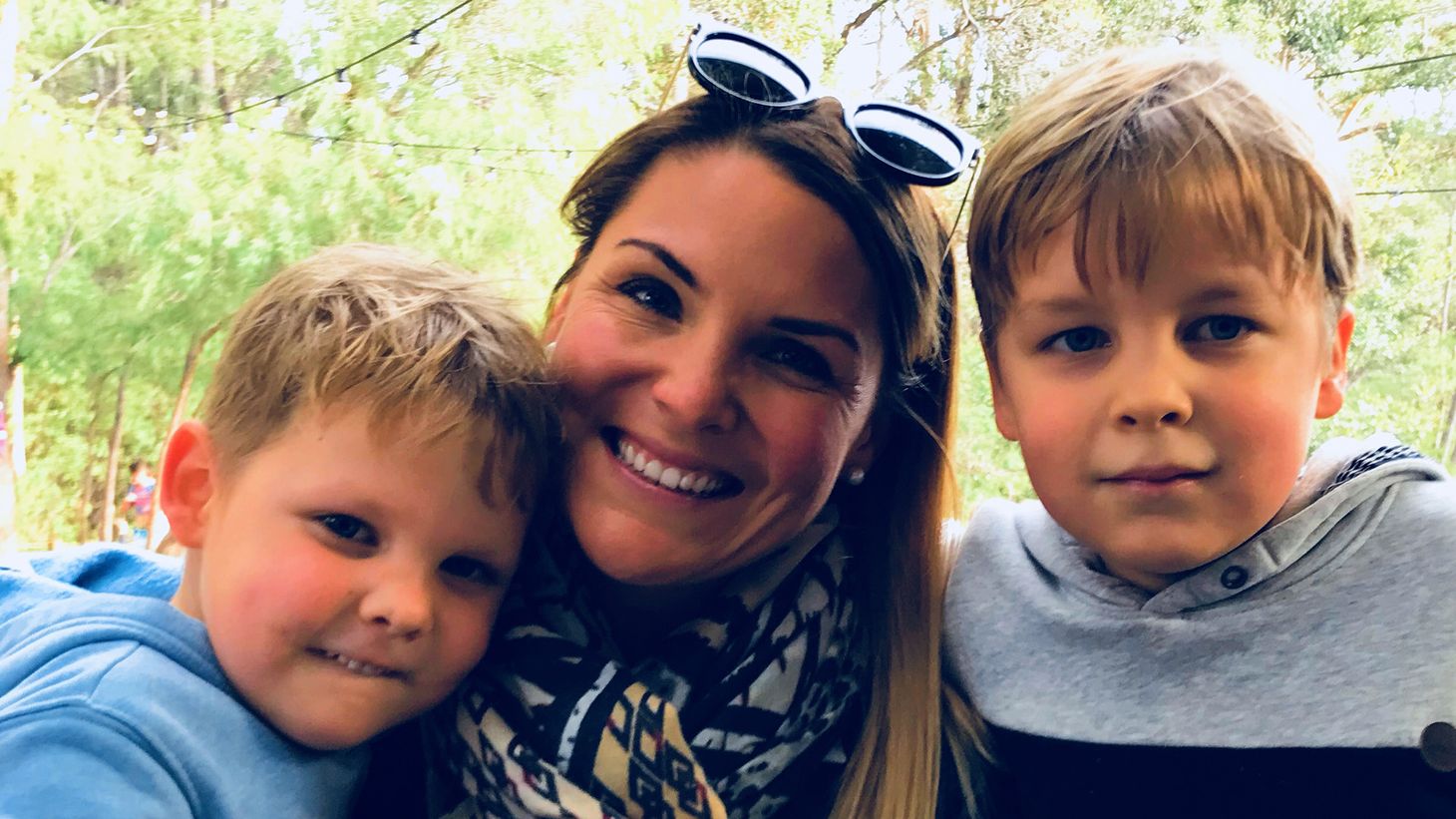“Food is fuel, it’s energy and it’s healing, but most of all, food is the greatest form of self-love.”
When I was a child, my mum strived to feed me the best she could. She grew her own vegetables, baked her own bread and sourced fresh milk directly from the milkman (you could back then). My lunchboxes were always filled with homemade food and nothing processed.
We were incredibly poor, my mum and I, and we couldn’t afford anything extravagant, but Mum still sourced the best produce she possibly could. She would take me fishing on weekends for trout and have huge pots of creamed silverbeet always on the stove, so I always had my greens. Having said that, although they were all wholefoods, I ate a lot of grains and dairy, which I later found out I was sensitive to.
In my late teens and early twenties, I developed a very unhealthy relationship with food. I was an elite athlete at the time and the “low fat” era had well and truly kicked in. I was terrified of food for fear of gaining weight that would impact my performance. I regularly starved myself.
My typical day would consist of four to five hours of training and a full work schedule. So while I was an athlete and my body could do what I needed it to do, I was lacking a mental understanding of how I could look after my own body. I would have an apple and a low-fat hot chocolate for breakfast and not eat all day. For dinner I would have low-fat pumpkin soup and strawberry milk or cabbage soup.
The day before a race, I would “carbo load” (as many athletes did) on bread and pasta, and the day after the race I would binge on whatever I wanted—it was the classic 5:2 diet. My habit led to what I now know was disordered eating and I started to struggle with fatigue.
When I started working as a property manager, things began to improve, but I was lacking passion in my career. Although it was fun, it wasn’t rewarding and I didn’t enjoy having no purpose. The long hours started taking a toll on me and without my job feeding my purpose, I decided to reignite my interest in nutrition.
After my boys were born, I lived on any food scraps I could get my hands on as I was always carrying or nursing one of them—they were constantly so sick. Both were born by caesarean and I had very difficult deliveries. With significant reflux, my boys were difficult to feed and neither of them slept for more than 15 minutes at a time.
Their reflux started to cause major complications, including aspiration, scarring on the lungs and cell changes within the walls of their oesophagus. Their health difficulties resulted in them having 18 surgeries, including scopes, grommets, adenoids, tonsils and fundoplication. As a result of these complications, they developed major food sensitivities and had a long list of complex bowel issues. They were hospitalised many times with pneumonia, bronchitis, asthma, influenza and chronic fatigue.

My boys were eventually diagnosed with a primary immunodeficiency, with critical elements of their immune system missing and a weakness in producing antibodies. Following the diagnosis, they endured a 12-month course of prophylactic antibiotics while we fought to get them approved for replacement immunoglobulin therapy.
During this time, I remember eating a lot of fruit and my husband did most of the cooking when he was home: quick stir-frys or BBQ meats and salad. I was often far too tired or upset to eat.
When I ended up with my own autoimmune disease, I poured my little leftover energy into research and learned about the healing power of food. I realised that I wasn’t going to be able to help my boys if I didn’t help myself.
Then I found the Nutritional Therapy Association (NTA) who taught me how to nourish my body properly. That’s when my philosophy that “food is not reward or punishment” really kicked in. The NTA were able to answer all my questions and doubts about healthy eating. My underlying passion for nutrition returned and with each class, I was able to understand where I previously went wrong. The NTA taught me that food is fuel, it’s energy and it’s healing, but most of all, food is the greatest form of self-love.
Today, I’m a nutritional therapy practitioner (NTP) and what I love about it is that I can share what I do at home with others. I now feel in control of my body. I eat a diet rich in nutrient-dense foods and clean treats when I feel like it.
My boy now have their health and I am so grateful. I love providing them with nurturing foods. Today, I often get asked, “How do you get your kids to eat more veggies, let alone fermented ones?” I always say it sounds impossible, but we forget that our mini-humans are born intuitive eaters and given the right environment and a proper whole food diet (without processed foods), they’ll often naturally gravitate towards the things they’re needing and make less fuss about it. The more I nurtured the food I was giving them, the more I saw their health improve.

The NTA has taught me to be responsible for my body rather than blame myself for the downfalls. My positive outlook allows my intuition to drive my nutrition. I eat more than I ever have on the days I’m hungry. I fast regularly on the days I’m not. I never deprive myself and I never go without if I am needing nourishment. And I’ve never felt so good, in my body, my mind and my soul.
Becoming an NTP has changed my whole outlook on life—my career lets me empower people every day. Like anyone, I struggle with the balance of work and motherhood, but I wouldn’t change it for the world. When you do what you love, it makes the struggle worth it. I can give back, so the sacrifice I make is so worthwhile to me.
WIN CHILDREN’S BOOKS!
Submit a personal story on your parenting journey, thoughts or experience and if we use your story, we’ll send you a selection of children’s books! Write to us at editorial@MumsAtTheTable.com.
How helpful was this article?
Click on a star to rate it!
0 / 5. 0
Be the first to rate this post!
Jessica Wilson
Related posts
Subscribe
Receive personalised articles from experts and wellness inspiration weekly!

